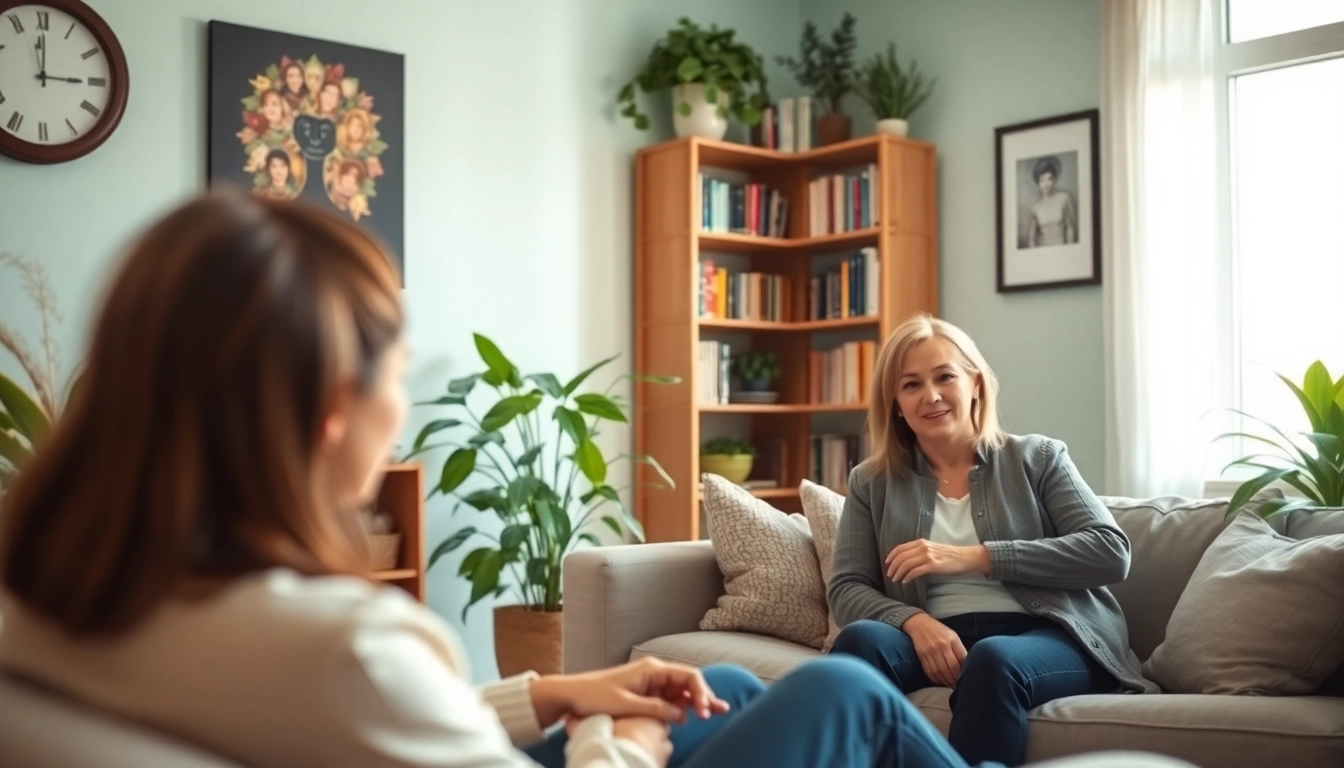Introduction to Attachment Theory
Attachment theory emerged from the work of psychologist John Bowlby and was further expanded by Mary Ainsworth in the mid-20th century. This framework describes how the relationships formed during early childhood, especially with primary caregivers, influence emotional regulation, interpersonal relationships, and overall psychological health throughout one’s life. For those seeking deeper understanding and therapeutic support in navigating these complex relationships, working with an attachment theory specialist can be transformative. This article delves into the core aspects of attachment theory, its significance in therapy, and how specialists can provide tailored support for individuals and families.
Defining Attachment Theory
Attachment theory is based on the idea that the bonds formed between an infant and their caregiver greatly influence that child’s emotional and social development. Bowlby proposed that these attachments serve an evolutionary purpose, ensuring that young children are kept close to their caregivers for nourishment, safety, and emotional support. Ainsworth expanded this theory through her “Strange Situation” experiment, identifying different attachment styles—secure, anxious, avoidant, and disorganized—that reflect how children respond to stress or separation from their caregivers.
Key Concepts and Models
Attachment styles fall into four main categories:
- Secure Attachment: Children with a secure attachment feel safe and are able to explore their environment. They show distress when their caregiver leaves but are quickly comforted upon their return.
- Anxious Attachment: Anxiously attached individuals may be overly dependent on their caregiver, displaying high levels of anxiety about separation and mixed feelings about proximity.
- Avoidant Attachment: Those with an avoidant attachment style often appear aloof, tending to avoid emotional closeness and downplaying the importance of relationships.
- Disorganized Attachment: This style reflects a lack of clear attachment behavior, resulting from inconsistent or frightening experiences with the caregiver.
Importance of an Attachment Theory Specialist
An attachment theory specialist plays a vital role in helping individuals understand their attachment styles and how these styles impact their relationships. These trained professionals are equipped with tools and strategies to help clients mend maladaptive patterns, improve emotional regulation, and foster healthier interactions with others. Their understanding of the complexities of attachment allows them to tailor therapy sessions specifically to the needs of the individual or family, creating an environment conducive to healing and growth.
Why Seek an Attachment Theory Specialist?
Seeking the guidance of an attachment theory specialist can yield significant benefits, especially for those grappling with relationship challenges or patterns rooted in past experiences. Understanding one’s attachment style can illuminate many aspects of personal and relational dynamics.
Identifying Attachment Styles
A crucial first step in therapy is identifying one’s attachment style. A specialist often employs assessments and discussions to help clients recognize their patterns of behavior. Exhaustive evaluations can reveal how past experiences shape responses to intimacy, conflict, and emotional needs. Clients may find that they resonate strongly with anxiety in relationships, or perhaps a tendency to withdraw emotionally, highlighting the importance of tailored strategies that resonate with their specific attachment history.
Benefits of Specialized Therapy
Working with an attachment specialist offers numerous advantages:
- Insights into Behavioral Patterns: Clients gain a clear understanding of their behavioral responses and coping mechanisms.
- Improved Relationships: Specialized therapy helps clients foster healthier, more stable relationships by addressing core beliefs and fears.
- Enhanced Emotional Regulation: Therapists guide clients in developing tools to manage emotions and reactions effectively.
- Support for Trauma Recovery: For those with histories of trauma related to attachment figures, a specialist can facilitate healing through targeted interventions.
Common Challenges in Therapy
Despite the potential benefits, clients may encounter challenges during therapy. These can include difficulties in discussing sensitive topics, resistance to change, or fear of vulnerability. A skilled attachment theory specialist is trained to navigate these obstacles, employing various therapeutic approaches to create a safe space for exploration and growth.
Effective Techniques Used by Attachment Theory Specialists
Attachment theory specialists utilize various evidence-based techniques to promote healing and growth in their clients. These methods often blend different therapeutic modalities, focused on attachment styles.
Emotionally Focused Therapy (EFT)
Emotionally Focused Therapy (EFT) is a widely recognized method that emphasizes the emotional bond between individuals. Developed by Dr. Susan Johnson, EFT is particularly beneficial in couples therapy, where the focus is on changing negative patterns and fostering secure attachments. It helps partners recognize each other’s emotional needs and create a stronger emotional connection. Specialists trained in EFT utilize various techniques, including softening behaviors and expressing vulnerability, guiding clients through exercises to reconnect emotionally.
Integrating Attachment Styles in Healing
Specialists work to integrate knowledge of attachment styles into practical healing strategies. This often involves:
- Self-Reflection Activities: Clients engage in guided exercises to reflect on their attachment history and its current impact.
- Role-Playing: Therapeutic play is often used to navigate difficult interactions, allowing clients to practice new responses to familiar trigger scenarios.
- Mindfulness Practices: Mindfulness helps clients stay present during emotional turmoil, enhancing emotional regulation and reducing reactivity.
Practical Tools for Clients
To empower clients outside of therapy sessions, specialists equip them with actionable tools. Some effective strategies may include:
- Journaling Techniques: Encouraging clients to write about emotions or relationship dynamics can foster clarity and insight.
- Communication Skills Training: Clients learn to express their needs and emotions healthily and assertively, reducing misunderstandings.
- Support System Identification: Helping clients recognize their support systems encourages connections with safe individuals, building a recovery network.
Choosing the Right Specialist for Your Needs
Finding the right attachment theory specialist can significantly influence the therapeutic experience and outcomes. It’s necessary to consider multiple factors when searching for the perfect match.
Factors to Consider in Selecting a Therapist
When evaluating potential specialists, consider:
- Experience and Training: Look for therapists who have specific training and a substantial background in attachment theory.
- Therapeutic Approach: Each therapist may have a unique style. It’s essential to find one whose techniques resonate with you.
- Client Feedback: Reading testimonials or reviews can provide insight into the therapist’s effectiveness and approachability.
Verifying Credentials and Experience
Before proceeding, ensure that the therapist is licensed and accredited. Verify their qualifications by checking their educational background, certifications in attachment-focused therapy, and any specialized training they have pursued. Organizations that certify attachment therapists provide clear information about member practices, enhancing the reliability of their capabilities.
Personalized Approaches in Therapy Sessions
The best attachment theory specialists individualize their approach based on the client’s unique experiences and needs. Engaging in an initial consultation can be beneficial, as it allows both the client and the specialist to discuss specific concerns and treatment goals, ensuring that they align effectively.
Future Trends in Attachment Theory and Therapy
The field of attachment theory is continually evolving, and recent advancements are reshaping how therapy is conducted. Specialists are becoming increasingly aware of the profound influence that societal, cultural, and technological changes have on attachment narratives.
Research Advancements in Attachment Theory
Emerging research in attachment theory is unveiling new insights into how attachment styles affect mental health, relationship dynamics, and parenting approaches. Studies exploring neurobiology, attachment in adulthood, and the integration of attachment theory into various therapeutic modalities highlight the responsiveness of attachment theory to contemporary issues. Ongoing studies aim to validate existing theories while proposing new models that further incorporate personal and social contexts.
Technological Integration in Therapy
The integration of technology into therapy is a promising trend. Digital platforms allow specialists to reach clients who may not have access to in-person services, providing resources like virtual therapy sessions and online support groups. Additionally, mobile applications offer tools for tracking emotional health, journaling prompts, and educational resources, enabling clients to engage with their treatment continuously.
The Evolution of Attachment Practices
As awareness of attachment styles grows, practices are becoming more inclusive and adaptable. Professionals are increasingly focusing on diverse populations, recognizing the unique attachment challenges faced by those from varying backgrounds and experiences. This evolution leads to more culturally sensitive practices, enhancing the relevance and impact of therapy.
In conclusion, embracing the insights of an attachment theory specialist can transform one’s understanding of personal relationships and emotional health. By seeking support, individuals can navigate their attachment styles more effectively, leading to healthier, more fulfilling connections with themselves and others. As research and technology continue to evolve, the potential for enhanced therapeutic approaches remains vast, making it an exciting time for both clients and practitioners in the realm of attachment theory.



